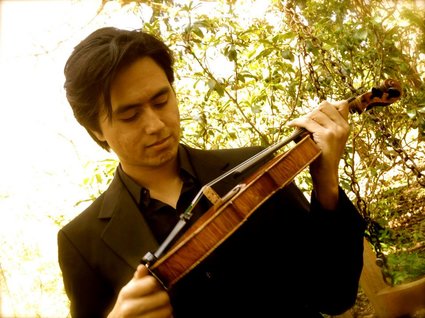Philosophy of Music Education
"Strings have no soul, they can only sing the heart who plays them." --Shinichi Suzuki

I believe that music is an essential part of being human, and in order for education to be a holistic experience, music education must be a part of the curriculum. Music can hone the mind, body, heart, and spirit, and can accomplish this in a beautiful way. Shinichi Suzuki, the famous violin pedagogue, once said, “Music exists for the purpose of growing an admirable heart.” By being part of and contributing to the creation of something beautiful, children are able to add that beauty to their lives and in turn become beautiful people.
There are a number of extrinsic benefits of music education as well. Through music lessons, students develop essential 21st Century Skills such as self-motivation, critical thinking, collaboration, communication, and creativity. In order to be successful at music, a student must be able to motivate themselves to practice individually and be able to identify and fix their own errors. Music students must also be able to work in both large and small groups. Music is an art of communication, so music students learn to communicate with each other and with the audience. Finally, music provides students with an avenue for self-expression, which in turn helps them build self-confidence. It takes a great deal of strength to stand in front of a room full of people and be one’s true self, and music helps students develop this strength.
Ivan Galamian, one of the most influential violin teachers of the 20th century, writes that "technique is freedom," in which students with good technique have enough control over their own instrument to be able to properly express themselves as artists. This is what I want for my students both as an orchestra and a violin teacher. Using aspects of the Galamian, DeLay, Sassmannshaus, and Suzuki methods, I aspire my students to be able to play in a technically sound and ergonomic way. That way, they are free to play expressively and without risk of injury. I highly value music literacy and ear training, and strive to make sure that my students are not only good string players, but also good musicians and good people.
There are a number of extrinsic benefits of music education as well. Through music lessons, students develop essential 21st Century Skills such as self-motivation, critical thinking, collaboration, communication, and creativity. In order to be successful at music, a student must be able to motivate themselves to practice individually and be able to identify and fix their own errors. Music students must also be able to work in both large and small groups. Music is an art of communication, so music students learn to communicate with each other and with the audience. Finally, music provides students with an avenue for self-expression, which in turn helps them build self-confidence. It takes a great deal of strength to stand in front of a room full of people and be one’s true self, and music helps students develop this strength.
Ivan Galamian, one of the most influential violin teachers of the 20th century, writes that "technique is freedom," in which students with good technique have enough control over their own instrument to be able to properly express themselves as artists. This is what I want for my students both as an orchestra and a violin teacher. Using aspects of the Galamian, DeLay, Sassmannshaus, and Suzuki methods, I aspire my students to be able to play in a technically sound and ergonomic way. That way, they are free to play expressively and without risk of injury. I highly value music literacy and ear training, and strive to make sure that my students are not only good string players, but also good musicians and good people.